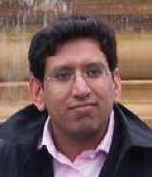In a nutshell
While the world struggles to flatten the contagion curve, Arab countries have the additional task of flattening the conflict curve: if they fail, neither health nor wealth will lie in the region’s future.
Now is the time for the Arab world to work towards common solutions, embrace a shared destiny and launch a new development model to address its increasingly interconnected socio-economic challenges.
Now is the time to start drafting a minimum agreeable agenda, focusing on core humanitarian concerns: the cessation of hostilities, support for refugees, post-conflict reconstruction and market access for firms affected by the latest wave of disruptions.
The Covid-19 pandemic has triggered a public health emergency and a steep reduction in oil prices, which represents a perfect storm for the Middle East, where everything from salaries to subsidies are dependent on oil revenues. As in the past, the oil price shock will inevitably spill over to non-oil-producing countries through reductions in official aid transfers and lower worker remittances, further eroding the fiscal cushions needed to cope with Covid-19.
Worse, the pandemic has hit the region at a time when it was already reeling from multiple crises. The Syrian tragedy continues, civil wars have been raging in Libya and Yemen and the ‘Arab street’ has been remobilising. From Algeria and Sudan to Iraq and Lebanon, protesters are speaking out in unison against a development model that has produced only corruption and social instability.
The public’s perceptions are not unfounded. Though it is still characterised as a middle-income region, the Middle East has witnessed a worrying uptick in poverty and income inequality. A recent World Bank report shows that the share of the region’s people living in close proximity to violent conflicts increased from 6% to 20% between 2007 and 2017 – far exceeding the global average of 3%.
The region now accounts for 40% of the world’s displaced people. With the world’s highest youth unemployment rate, its bloated public sectors were already becoming increasingly difficult to sustain. Whether Iraq can even pay its civil servants’ salaries next month remains to be seen. And it is not alone.
Now that Covid-19 is upon us, the Middle East faces an extraordinary challenge that will require an extraordinary response. Though there is a growing chorus calling for global efforts to deal with the pandemic, the first thing the Middle East needs is a targeted regional strategy. The crisis should be recognised as an opportunity to build a new political order for the region. Now is the time for the Arab world to work towards common solutions, embrace a shared destiny and launch a new development model to address its increasingly interconnected socio-economic challenges.
The post-World War II regional order had already reached its breaking point by the end of 2019. The United States is no longer the sole arbiter of Middle Eastern affairs, owing to its declining reliance on oil imports and its growing fatigue with external military engagements. And while Russia, the European Union and regional powers have shown an increasing willingness to intervene in the region, none has the resources or desire to fill America’s shoes.
As a result, Arab countries can no longer rely wholly on global powers for assistance in confronting the existential challenges they face. While some Middle Eastern countries are in talks with the International Monetary Fund (IMF) for emergency financial assistance, most governments lack the political bandwidth to adhere to IMF conditionality. And even if the Fund relaxed its usual requirement of tight fiscal consolidation, its assistance would help only with funding short-term social protection. After the immediate crisis, it will be up to the region’s policy-makers to devise a more sustainable development model.
That task cannot be carried out by any one government, even one that has the support of international donors. Because the region’s economic problems are so interconnected, only an integrated approach can address them.
Among the most pressing issues, public health is and will remain high on the agenda. But the Middle East also needs to expand the availability of water, gas, oil and transport, as well as strengthen its environmental protections. All of these issues involve cross-border dynamics, and therefore require regional coordination. Likewise, to revive economic growth, Middle Eastern countries need to boost regional integration in tourism, trade, services and other major sectors.
Such a holistic growth strategy cannot be achieved through existing cooperative frameworks. The traditional model of Arab regionalism is now defunct. The Arab League’s regular summits are increasingly viewed as useless gatherings – all talk and no action. Sub-regional structures such as the Gulf Cooperation Council have become equally irrelevant, owing to internal discord among member states. While such divisions will certainly pose difficulties in creating a new multilateral framework for cooperation, the question we must ask is whether there is any hope for the Middle East without it.
As matters stand, feuding Arab countries are fighting a war of attrition that yields no individual victories, only collective losses. Never before has there been a greater need for collective effort. As the pandemic lays bare the region’s fault lines, Arab leaders must recognise that a strategic vacuum never remains unfilled. Absent coordinated action, those pursuing their interests unilaterally will seize the initiative, ensuring still more conflict and instability. While the world struggles to flatten the contagion curve, Arab countries have the additional task of flattening the conflict curve. If they fail, neither health nor wealth will lie in the region’s future.
To end the conflicts and chart a new, unified approach to the region, Arab leaders must abandon old assumptions and confront new realities head-on. The global pandemic offers an opportunity to imagine a different future. Partnerships are easier to forge in the crucible of a crisis. Now is the time to come together and start drafting a minimum agreeable agenda, focusing on core humanitarian concerns: the cessation of hostilities, support for refugees, post-conflict reconstruction, and market access for firms affected by the latest wave of disruptions.
Long after the Covid-19 crisis is over, the rest of the world will be preoccupied with other concerns. Only by helping each other can Arabs help themselves. Their leaders should start now.
This article was originally published by Project Syndicate. Read the original article.



